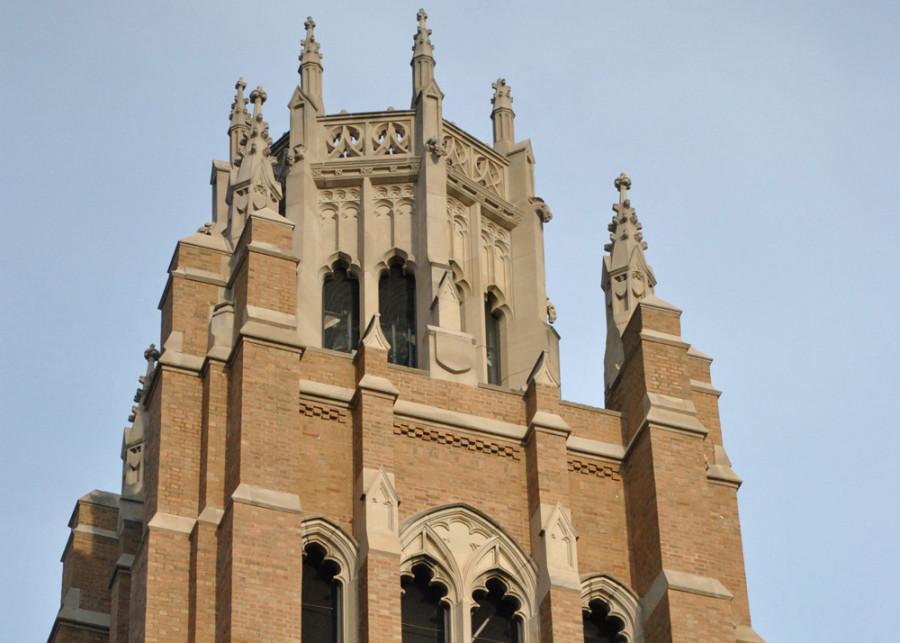This fall marks the implementation of new course requirements for the College of Arts and Sciences, the College of Communication and the College of Professional Studies. Students will now need only 120 credits to graduate with their degrees.
“The board and the president’s office realized that there was no … (university wide requirement) for how many credits you have to have for a major,” said Susanne Foster, the associate dean for academic affairs in the College of Arts & Sciences. “They decided to set it for the university at 120, which is standard across the country.”
With fewer general course requirements, students can ideally take more classes that they are interested in. But changes this big can understandably cause a lot of confusion, especially when it comes to graduation requirements.
So here is some clarification for those of you who just looked up from Netflix to realize your whole world is up in the air.
It all took about a year.
Foster worked for a year with students and faculty to determine what would be best for every group involved. She said the changes have been well-received by most. Still, as with any change, there has been a “fair amount of trepidation” for some faculty members.
But the changes are not as in-your-face as one would think. Remarkably, no classes will be lost in the transition, even with students not needing to take as many classes.
Sections of certain introductory courses might be cut or added as needed, but Arts and Sciences Dean Richard Holz said the college is letting students “vote with their feet” when it comes to choosing classes they think are important to them. Holz also cited history and language courses as an area ripe for improvement. Those classes can have reduced sizes, which he said is better-suited for student learning.
With greater leeway to take upper division courses as electives, the idea is that the students’ choices will help determine which classes should be offered.
The college’s core curriculum has changed, not the university’s.
There are essentially four course categories that are required by a Marquette college in order for a student to get their degree.
The first is the University Core of Common Studies (UCCS), which is university wide. This includes all the categories that we all know and love: rhetoric, mathematical reasoning, diverse cultures, histories of cultures and societies, individual and social behavior, literature and performing arts, science and nature, human nature and ethics (philosophy), and theology.
The other 84 credits come from requirements specific to that college, majors and/or minors, and electives.
The UCCS has not changed, which is why if you are in any college other than Arts and Sciences, Communication and Professional Studies, you are probably wondering what all the fuss is about. But for students whose colleges have changed the requirements, having a lighter overall course load leaves the door open to more varied educational opportunities.
Keep in mind though: certain majors or programs may still have specific requirements. This is true if you are pursuing a Bachelor of Arts in the College of Arts and Sciences: you still have to take 3 semesters of a foreign language in addition to the UCCS.
Make all your college bucket-list dreams come true.
The new changes are aimed at allowing students to do more of what they want in their time at Marquette, including studying abroad, adding a major or minor, doing an internship, grant work or research, or simply taking classes they are interested in just because they can.
This is particularly true in the College of Arts & Sciences, Foster explained, because there are two main models of arts and sciences education commonly seen across the country. The first is to provide a broad base of general knowledge by having certain requirements. This is what the old requirements aimed to do. The second model guided the new curriculum, giving students more elective space to do what Foster referred to as “high impact educational practices,” like studying abroad.
The opportunity to add new majors is also being strongly considered by Arts & Sciences. There is potential to add new majors or minors like environmental studies and Arabic studies. Eight proposals were submitted for new majors so far.
So where do you go from here?
Holz said so far the transition has been smooth and he continues to be open to student feedback in an effort to adjust accordingly. He encouraged students to take advantage of the advisers who are trained to navigate the changes and online resources.
Well over 100 students have made the decision to switch to the new bulletin (the handbook that tells students a college’s curriculum) thus far, according to Foster. The deadline for students who are graduating this winter to switch is September 4. All other students need to submit their form by December 11. All incoming students will automatically be on the new bulletin. She said the change, though large, was much needed.
“Curriculum should evolve,” she said. “Anything that doesn’t evolve dies.”

